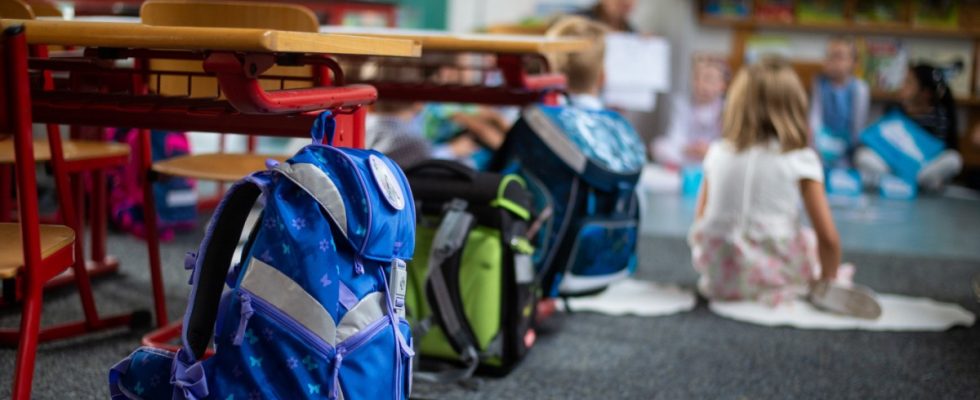Discussions about supporting primary school students after the recent Pisa defeat have been shaping Bavaria’s education policy for weeks. There is a lot of speculation, and Education Minister Anna Stolz (Free Voters) is eagerly awaiting the funding concept, which she is expected to present soon. According to Simone Fleischmann, the President of the Bavarian Teachers’ Association (BLLV), which traditionally represents primary and secondary school teachers, this debate goes far beyond the everyday life of schools. Using the example of 13 elementary, middle and special schools, Fleischmann traced “the reality” on Monday in Munich.
Accordingly, the question of whether English or religion should be eliminated in order to increase mathematics and German does not matter. There is no time for support when dozens of hours are canceled without replacement because teachers are missing: Officially, 0.9 percent of all school hours were canceled without replacement in the last school year, the BLLV comes to significantly higher values of five or eight percent in the calendar weeks examined as examples six. Substitute hours or the merging of two classes are not included. There can then be no question of quality, said Fleischmann, “the replacements are made by people who don’t know the class or who aren’t even teachers.”
Sabrina Neckov, school principal from Schweinfurt, told of a colleague who taught for weeks with bronchitis and pneumonia because she was unable to place newcomers in front of her class. “I wanted to send her home, but she’s right. I can’t expect that from a non-teacher,” Neckov said. In this second class, 15 out of 23 children cannot speak a word of German and have traumas from refugee camps in Turkey or Ukraine. The headmistress of a primary school in Ismaning said that several teachers travel to the middle school on an hourly basis to fill gaps and that they wouldn’t be able to do it without a retired teacher.
The situation will not be so dramatic at all 2,418 primary schools, 948 middle schools and 352 special education centers in the Free State. But primary, middle and special schools have been particularly affected by the shortage of teachers for years. Under these circumstances, special support for the children is out of the question, explained the school principals at BLLV. Support or inclusion lessons were canceled first in order to ensure normal operations.
There is a “crucial gap” between “what politicians are discussing and what is actually going on locally,” said the BLLV president. Without naming names, she made it very clear whose ideas she was particularly fed up with: Fleischmann objected, among other things, to “applause politics” and “press conferences by people who have no idea” about how things are going in schools. Prime Minister Markus Söder (CSU) recently suggested in January on the sidelines of the CSU parliamentary group meeting that the teacher shortage could be alleviated by, among other things, restricting part-time options, and that it would be best to eliminate primary school English in order to increase German and mathematics, but at the same time declared religion a taboo. “Now the fun is over, we don’t need any political-polemic statements, no seemingly simple solutions to problems,” said Fleischmann.
She rejected the string concert for more German and mathematics. The children need holistic education in all subjects, taught by professionals. Fleischmann did not deny that this wish is currently failing due to a lack of teachers. Their solution: The job needs to become more attractive. To do this, the “Piazolo package” had to go. In 2020, Stolz’s predecessor Michael Piazolo (FW) significantly restricted part-time work upon request and ordered overtime for all primary school teachers. As a result, the cases of teachers unable to work had increased significantly.
The fact that Education Minister Stolz seeks dialogue, praises school principals as experts and calls it presumptuous to want to know everything better from Munich is well received by the teachers. When presenting her key points for the Pisa package, she announced more responsibility for schools; school principals should decide where the time for more math and German comes from. The decisive factor will be the framework within which they are allowed to make decisions. The minister must now present details about this – and bring them through the cabinet.

